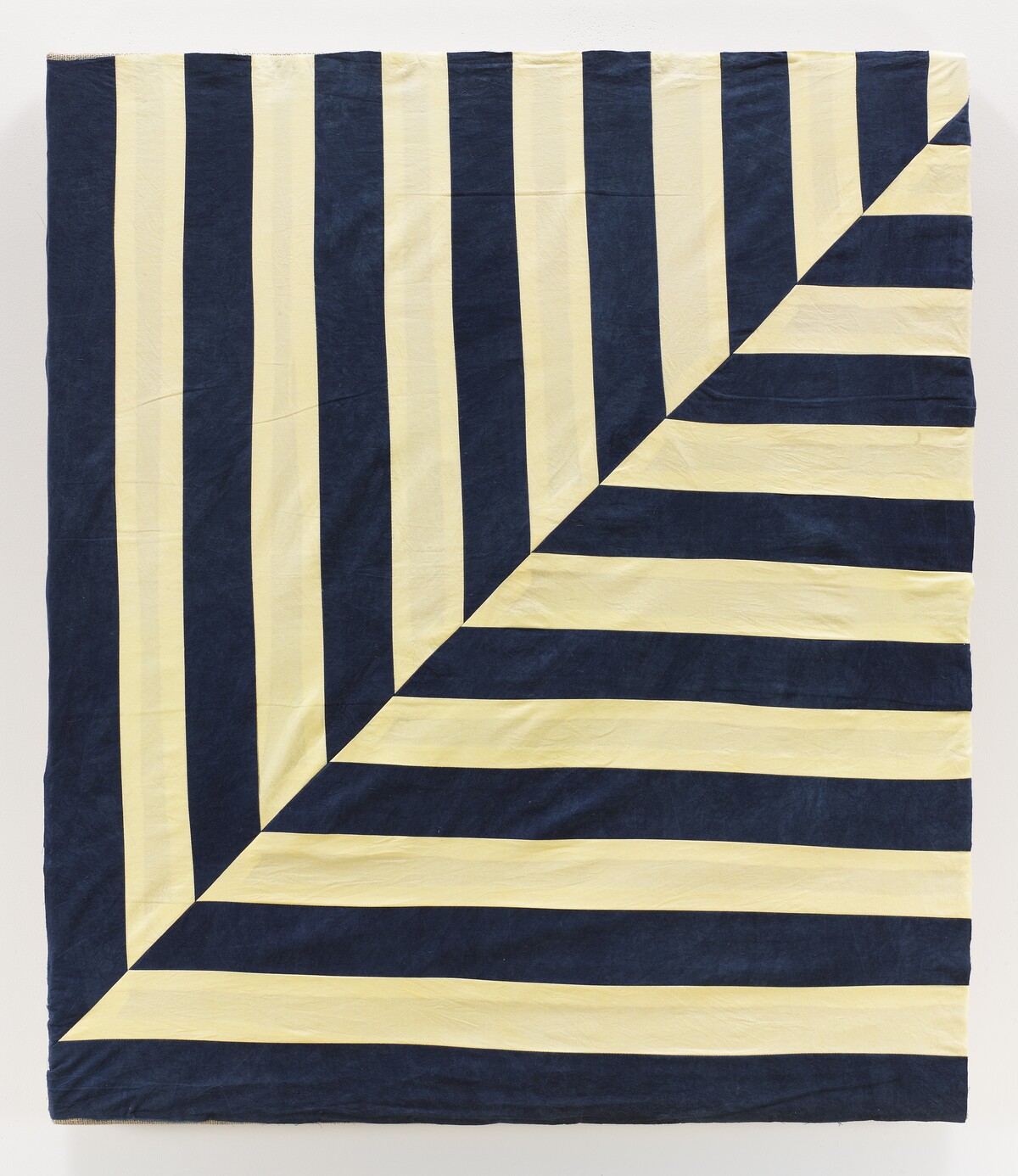From Rome to Purchase / The Dye Garden
September 25–December 22, 2019
Museum of Arts and Design, 2 Columbus Circle, New York City
735 Anderson Hill Rd
Purchase, NY 10577
USA
Work by Yto Barrada, an internationally-acclaimed, Moroccan-French, multi-media artist and winner of the 2019 Roy R. Neuberger Prize, will be on view at the Neuberger Museum of Art, September 25 through December 22, 2019 in Yto Barrada: The Dye Garden. This will be the first time that the exhibition, which originated at the American Academy in Rome, will be seen in the United States. The exhibition includes film, video, photography, sculpture, and hand-dyed textiles that are inspired by the artist’s family history, Islamic tradition, and the legacy of Western colonialism. Included are a 16mm film and large-scale, hand-dyed curtain, Tree Identification for Beginners (2017), commissioned for Performa 17 in New York and developed during the artist’s residency at the American Academy in Rome.
Barrada has long investigated gestures and grammar of resistance to structures of power and control. As Barrada describes it: “All my work explores strategies of survival—of resistance and constraint [which can be] oppression or domination…The central question remains, disobedience and insurrection. How does one acquire and transmit political courage?” Barrada’s interest in resistance is amplified by her explorations of cultural concerns and historical accounts, with a focus on Morocco. “It is both personal and political,” notes Helaine Posner, Chief Curator at the Neuberger Museum of Art, “[and] is informed by postcolonial thought, subaltern histories, and society’s ‘hidden transcripts,’ which are the secret discourse of the powerless, spoken behind the back of the powerful.”
This presentation of Yto Barrada: The Dye Garden is co-organized by the Neuberger Museum of Art and the American Academy in Rome, is co-curated by Ms. Posner and Peter Benson Miller, Curator and former Andrew Heiskell Arts Director at the Academy. The exhibition is accompanied by a co-published catalogue with contributions by the curators and by artist Yto Barrada. Generous support for the Roy R. Neuberger Prize has been provided by Jim Neuberger and Helen Stambler Neuberger.
The title of the show relates to Barrada’s interest in the geology and botany of North Africa in the context of the colonial and postcolonial eras; and her explorations—the foraging and extraction of natural pigments, and dyeing of fabric. More specifically, it relates to the fact that the artist is planting an actual dye garden in Tangier. Six of her recent hand-dyed textile works are patterned on Frank Stella’s series of fluorescent striped paintings (1964–65) that were inspired by the geometric forms and vibrant hues of Arabic tiles that he may have seen during his honeymoon in Morocco, at a time when he sought inspiration and self-discovery in North Africa. The striped patterns refer to the fabrics worn by Moroccan farm workers and those in works by painters Mohamed Chebaa, Farid Belkahia, and Mohammed Melehi, artists who pioneered a North African modernist abstraction and were founders of the Casablanca School in the 1960s.
Barrada’s reclamation of Stella’s work serves as a sly feminist riff on modernist abstraction, and is an insightful contemporary critique of the orientalist tradition. Mr. Miller notes that the fabrication of textiles, which the artist collects, and the dyes used to color them allow her to weave together the interests and anecdotes of her family with intertwined colonial histories and vernacular practices: “Many of Barrada’s projects highlight ‘women’s work’ in the broadest sense. Far from insisting on any kind of simple dichotomy of gender, Barrada proposes a paradigm shift in a field in which the discourse remains dominated by men. Her subtle use of these sources is leavened by playfulness, a wry sense of humor, and an inventive use of children’s games and toys—the basic syntax of idea formation.”
On Saturday, September 21, 6–7:30pm, the Neuberger Museum of Art will honor Yto Barrada at a special award presentation and reception. RSVP



